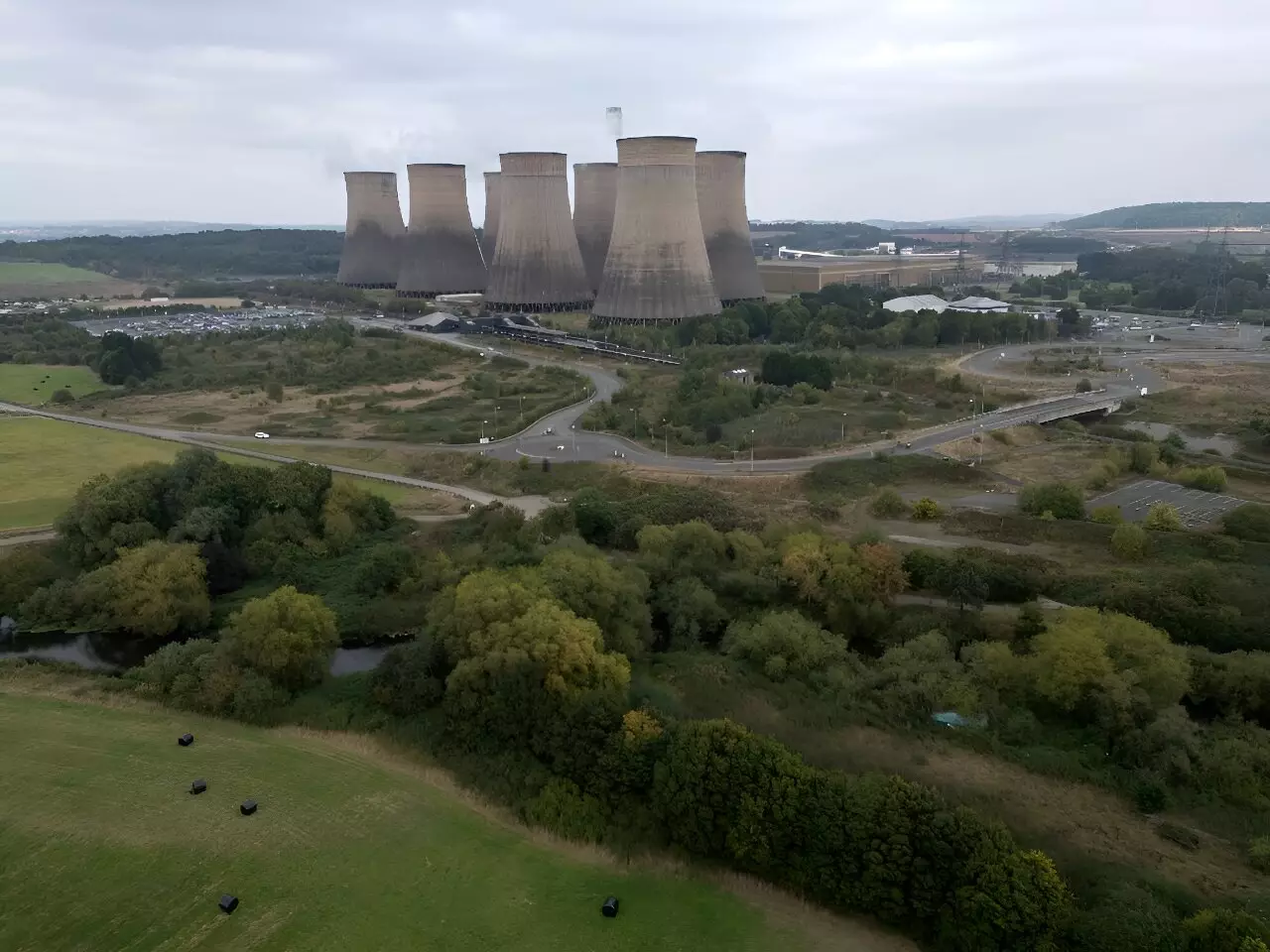On Monday, the United Kingdom will witness the shuttering of Ratcliffe-on-Soar, its last operational coal-fired power station. This pivotal event not only signifies the end of an era for coal electricity production but also positions Britain as the first member of the G7 to completely extricate itself from coal as a power source. The station, which has long been a fixture in the industrial landscape of central England, has operated for nearly six decades and stands as a testament to an energy paradigm that is rapidly fading. The decision to close the plant furthers the UK’s ambitious climate goals to decarbonize its electricity sector by 2030 and achieve carbon neutrality by 2050.
Energy Minister Michael Shanks emphasized the importance of this transition, stating that while the coal age is concluding, a promising future filled with sustainable energy jobs is emerging. The closure aligns with broader efforts to combat climate change and reinforces the UK’s commitment to embrace renewable energy solutions. As the site enters a two-year decommissioning process led by its owner, Uniper, employees will be redeployed or entered into redundancy procedures, raising concerns about the social and economic implications of this transition for the workforce.
The closure of Ratcliffe-on-Soar is emblematic of the UK’s broader strategy to phase out fossil fuels. It marks a watershed moment, eliminating Britain’s 140-year reliance on coal, a fuel that powered the nation through revolutions and economic growth. Historically, coal was the backbone of British energy production, contributing as much as 70% to the electricity mix until the 1980s, before government regulations began to curtail its dominance.
In stark contrast to its once prominent status, coal’s share has dwindled sharply over the past decade, sinking to a mere 1% of the electricity supply this past year. Analysts and environmental advocates recognize this as the culmination of persistent efforts to transition toward cleaner energy sources, reflecting a global shift that other G7 nations are beginning to follow. While Italy, France, Canada, and Germany have set timelines to reduce coal dependence, Britain’s decisive action has set a precedent for climate leadership. Doug Parr of Greenpeace UK stated that this action could inspire other countries to accelerate their transitions away from fossil fuels, reinforcing the urgency established at international climate conferences.
Transitioning from coal to more sustainable energy sources is crucial not just for reducing emissions but also for revitalizing the economy. As coal reliance wanes, there is a growing demand for renewable energy infrastructure, which could generate thousands of new jobs. The proposed “carbon-free technology and energy hub” that is slated to replace Ratcliffe-on-Soar signals an important shift in energy production methodologies, aiming to harness innovative technologies that prioritize sustainability.
The current energy landscape in the UK is already evolving—with natural gas accounting for a third of electricity production in 2023, while wind power has surged to a quarter of the mix. Nuclear energy contributes another 13%. Encouraged by a newly elected Labour government, ambitious plans are being drawn up to expedite the development of renewable energy projects such as offshore wind and tidal energy, further diversifying the energy portfolio.
Nevertheless, the transition raises challenges, particularly regarding the social implications for workers in the coal sector and the ongoing reliance on gas. Environmental advocates emphasize the necessity of not just abandoning coal, but also reducing dependence on natural gas, which remains a prevalent source of energy. The pressure mounts for the UK to unlock its vast renewable energy potential to ensure a smooth and just transition.
Ratcliffe-on-Soar has been utilized sporadically in recent years, often as a backup during peak demand scenarios. Its last coal delivery, which could have provided limited power for only a few homes, illustrates the diminishing role of coal in Britain’s energy future.
As the UK embarks on this new chapter, it is imperative that strategies focus not only on innovation and environmental sustainability but also on preserving livelihoods and creating inclusive economic opportunities. The closure of Ratcliffe-on-Soar is not merely an end; it marks the dawn of an exciting new era defined by renewable energy, sustainability, and resilience in the face of climate change.


Leave a Reply